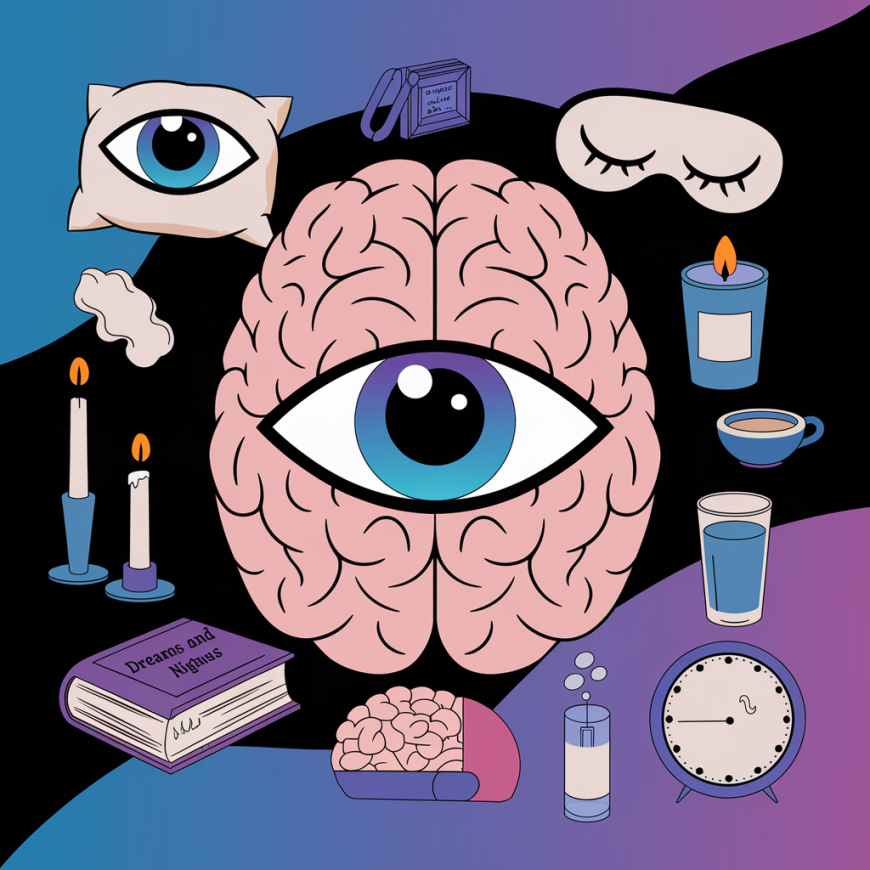The Science of Sleep: Tips for Better Rest and Recovery
Sleep is a fundamental aspect of our health, yet many of us struggle to achieve the quality rest we need for optimal performance and well-being. The science of sleep reveals its critical role in physical recovery, mental clarity, and overall health.

Understanding how sleep works can empower us to make better choices for our nightly routines and improve the way we feel during the day. Whether you're an athlete looking to enhance recovery, a busy professional in need of sharper focus, or simply someone wanting to feel more energized, learning how to optimize your sleep can lead to significant improvements in your life. In this blog, we will explore the science behind sleep and share practical tips for better rest and recovery.
1. Dark Room
A dark room is crucial for good sleep because it helps regulate your body’s natural circadian rhythm, the internal clock that controls sleep-wake cycles. Exposure to light, especially blue light from screens or artificial lighting, can interfere with the production of melatonin, the hormone responsible for signaling to your body that it's time to sleep. When melatonin levels are disrupted, it becomes harder to fall asleep and stay asleep.
A dark environment encourages the natural rise in melatonin, promoting deeper and more restorative sleep.
2. Restful Environment
A restful environment is essential for a good night’s sleep. Make sure your mattresses, pillows, and bedding are clean and comfortable. Use white noise machines or earplugs to block out disturbing noises. Blackout curtains and eye masks help in blocking out unnecessary light.
3. Avoid Day Time Naps
While short naps can be refreshing, especially when you're feeling fatigued, excessive daytime napping can interfere with your ability to fall asleep and stay asleep at night. Throughout the day, your body builds up "sleep pressure," a feeling of increasing sleepiness, which makes falling asleep at night easier. Taking a nap reduces this sleep pressure, making it more difficult to feel tired enough when bedtime comes around.
4. Be Careful about the Food you eat
The food you eat plays a significant role in the quality of your sleep. Certain foods can promote restful sleep, while others may disrupt it. Tryptophan is an amino acid that helps your body produce serotonin, which is then converted into melatonin, the hormone responsible for regulating your sleep-wake cycle. Foods rich in tryptophan—like turkey, chicken, nuts, seeds, and dairy—can help promote the production of melatonin and encourage better sleep.
Caffeine is a stimulant that can interfere with your sleep, even if consumed several hours before bedtime. It blocks adenosine, a chemical that promotes sleepiness, and increases the production of cortisol, a stress hormone. Avoiding caffeine-rich foods and beverages like coffee, chocolate, and certain teas late in the afternoon or evening can help ensure you fall asleep more easily.
5. Relaxing Techniques
Relaxation techniques can significantly enhance your ability to fall asleep and improve the quality of your sleep. Practicing deep breathing can help activate your parasympathetic nervous system, which promotes relaxation. Visualization involves imagining a peaceful, relaxing scene or environment to distract your mind from worries and anxiety. Picture yourself in a serene place, like a quiet beach or a beautiful forest, and focus on the sounds, sights, and smells of that environment. This technique helps reduce mental chatter and creates a sense of calm.
6. Exercising Regularly
Regular exercise can significantly improve the quality of your sleep by promoting physical and mental relaxation, reducing stress, and helping regulate your circadian rhythm. Exercise stimulates the release of endorphins, the body's natural "feel-good" chemicals, which help alleviate stress and anxiety. By reducing the physical and mental tension accumulated throughout the day, exercise helps you feel more relaxed, making it easier to wind down and fall asleep.
Conclusion
In conclusion, understanding the science of sleep and incorporating practical tips into your daily routine can have a profound impact on your overall health, well-being, and recovery. By optimizing your sleep environment, paying attention to your diet and exercise habits, and adopting relaxation techniques, you can improve both the quality and quantity of your rest. Prioritizing good sleep not only enhances physical recovery and mental clarity but also supports long-term health and vitality. By making small, consistent changes, you can unlock the full benefits of restful sleep, ultimately leading to a more energized, productive, and balanced life.

 Ayesha Mir
Ayesha Mir